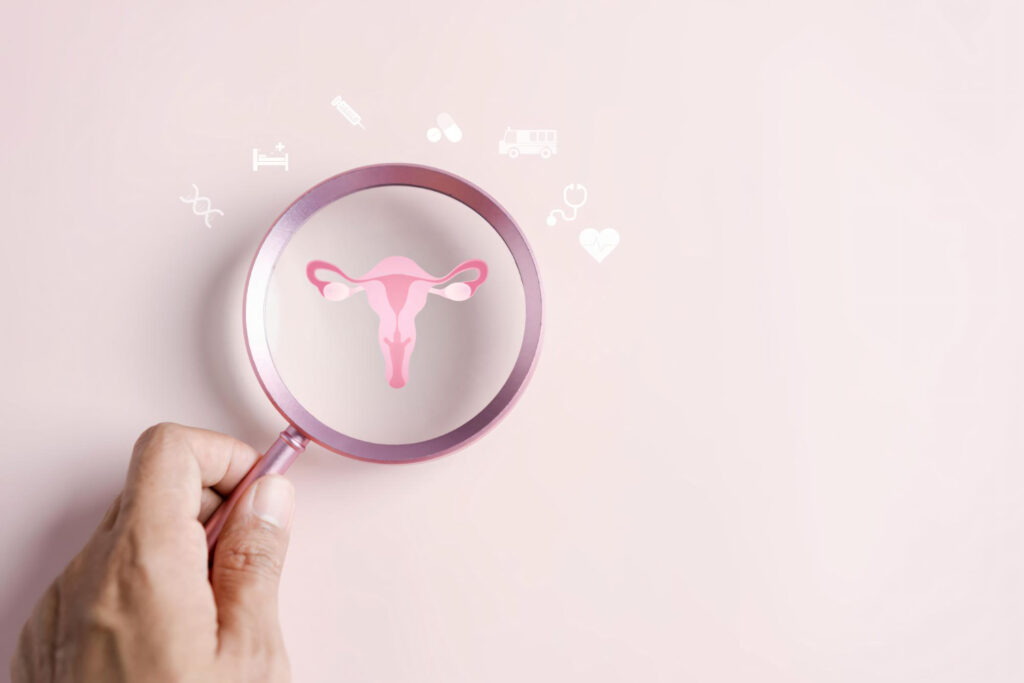Polycystic Ovary Syndrome (PCOS) is one of the most common hormonal disorders affecting women of reproductive age. It impacts nearly 1 in 10 women globally, often becoming a significant cause of infertility. While the condition can make it more difficult to conceive, the good news is — with early diagnosis, proper treatment, and lifestyle management, women with PCOS can absolutely get pregnant and build healthy families.
In this article, we’ll explore how PCOS affects fertility, the underlying causes, and the effective ways to overcome it, including both medical and natural approaches.
What Is PCOS?
PCOS, or Polycystic Ovary Syndrome, is a hormonal imbalance that affects how a woman’s ovaries function. The ovaries may develop multiple small cysts and fail to release eggs on a regular basis. The main hormonal changes seen in PCOS include:
- High levels of androgens (male hormones)
- Insulin resistance, leading to high insulin levels
- Low levels of female hormones that regulate ovulation
Common Symptoms of PCOS
- Irregular or missed menstrual cycles
- Excessive hair growth (hirsutism)
- Acne and oily skin
- Weight gain or difficulty losing weight
- Hair thinning or hair loss on the scalp
- Difficulty conceiving
Because these symptoms vary from woman to woman, PCOS often goes undiagnosed for years, delaying fertility treatment.
How PCOS Affects Fertility
PCOS is one of the leading causes of infertility, but the connection between PCOS and fertility isn’t just about ovulation — it involves complex hormonal and metabolic factors.
1. Irregular Ovulation or Anovulation
Healthy ovulation requires a balanced hormonal cycle. In PCOS, androgen and insulin imbalances interfere with the normal growth and release of eggs.
- Some women may not ovulate at all (anovulation).
- Others may ovulate irregularly, making it challenging to predict fertile windows.
Without regular ovulation, fertilization becomes unpredictable, which directly affects the chances of conception.
2. Hormonal Imbalance
PCOS causes the body to produce excess androgens and disrupts hormones such as FSH (Follicle Stimulating Hormone) and LH (Luteinizing Hormone).
- This imbalance prevents the maturation of eggs.
- Even if ovulation occurs, the egg quality may be compromised.
3. Insulin Resistance and Weight Gain
Most women with PCOS experience insulin resistance, which means their cells don’t respond effectively to insulin. This leads to higher blood sugar and insulin levels, which in turn stimulate the ovaries to produce more androgens.
This hormonal cycle contributes to weight gain, which in turn exacerbates ovulatory problems.
4. Endometrial Health and Miscarriage Risk
Women with PCOS often face endometrial thickening or hormonal irregularities that affect implantation. Studies also suggest that PCOS increases the risk of early miscarriage due to poor egg quality or progesterone imbalance.

Can You Get Pregnant with PCOS?
Yes, many women with PCOS do conceive successfully — both naturally and with fertility treatments.
However, achieving pregnancy may take longer and require medical guidance. The key lies in identifying your specific hormonal and metabolic imbalances and addressing them through a personalized treatment plan.
According to fertility research, up to 80% of women with PCOS who receive proper ovulation-inducing treatment can conceive within a year.
Ways to Overcome PCOS-Related Fertility Challenges
1. Lifestyle Changes — The Foundation of PCOS Management
Small lifestyle changes can make a big difference in restoring hormonal balance and improving fertility.
a. Weight Management
Even a 5–10% reduction in body weight can improve insulin sensitivity and restore ovulation.
Try:
- Regular moderate exercise (walking, swimming, cycling)
- A calorie-controlled, nutrient-dense diet
- Avoiding sugary and processed foods
b. Balanced Diet
Focus on foods that help stabilize blood sugar and reduce inflammation:
- Whole grains, legumes, and leafy greens
- Lean proteins like fish, chicken, and tofu
- Healthy fats (avocado, olive oil, nuts)
- Low-GI fruits (berries, apples, pears)
c. Stress Reduction
Chronic stress can worsen PCOS symptoms by disrupting cortisol and insulin levels.
Try relaxation techniques like yoga, meditation, deep breathing, or journaling.
2. Medical Treatments for PCOS Fertility
When lifestyle changes alone aren’t enough, doctors may prescribe medications to regulate ovulation and hormones.
a. Ovulation-Inducing Medications
- Clomiphene Citrate (Clomid): Stimulates egg production.
- Letrozole (Femara): Commonly used as a first-line treatment with fewer side effects.
- Metformin improves insulin sensitivity and can help regulate menstrual cycles.
b. Hormonal Regulation
Birth control pills may be prescribed (short-term) to regulate cycles before starting fertility treatment.
c. Advanced Fertility Treatments
If oral medications don’t work, doctors may recommend:
- IUI (Intrauterine Insemination): Sperm is placed directly in the uterus during ovulation.
- IVF (In Vitro Fertilisation): Eggs are retrieved, fertilized in a lab, and transferred back to the uterus.
IVF success rates in women with PCOS are generally very promising, especially with proper hormonal preparation.
3. Natural and Alternative Remedies
Some women prefer to combine medical treatments with natural methods to enhance fertility.
a. Herbal Supplements
Certain natural compounds can help balance hormones — such as inositol, omega-3 fatty acids, and vitamin D. (Always consult your doctor before taking supplements.)
b. Acupuncture
Research shows that Acupuncture may help improve ovulation rates and reduce stress in women with PCOS.
c. Sleep and Routine
Sleeping 7–8 hours a night and maintaining a consistent sleep routine helps regulate hormones and insulin levels.

When to See a Fertility Specialist
You should consult a fertility specialist if:
- You’ve been trying to conceive for over 6 months without success (if under 35)
- You have irregular or absent periods
- You have been diagnosed with PCOS, but are unsure about the next steps
A fertility expert can perform ultrasound scans, hormone tests, and design a personalized treatment plan to help you conceive safely.
Success Stories: Hope for Women with PCOS
Many women who once thought pregnancy was impossible with PCOS have gone on to have healthy babies.
Through a combination of diet, medication, and fertility treatments like IVF or IUI, PCOS-related infertility can be successfully managed.
The key takeaway: don’t lose hope — PCOS may delay conception, but it rarely makes it impossible.
FAQs
1. Can PCOS be cured entirely?
PCOS cannot be “cured,” but its symptoms can be effectively managed with diet, exercise, and medical treatment.
2. What’s the best diet for PCOS fertility?
A low-carb, high-protein, anti-inflammatory diet is most effective. Focus on whole foods, vegetables, and fibre-rich meals.
3. How long does it take to get pregnant with PCOS?
With proper management, many women conceive within 6–12 months of starting treatment.
4. Is IVF successful for PCOS patients?
Yes, IVF success rates for PCOS patients are often high, as doctors can carefully control ovulation and fertilisation.
5. Can weight loss alone improve fertility in PCOS?
Yes. Even a modest weight loss can help restore ovulation and increase the chances of conception.
Conclusion
PCOS may make your journey to motherhood a bit more challenging, but it is not the end of the road. By understanding how PCOS impacts fertility and taking proactive steps — from lifestyle modifications to advanced fertility treatments — you can overcome infertility and achieve your dream of pregnancy.
If you’re struggling with PCOS or irregular cycles, don’t wait.
Consult our fertility specialists to get a personalized treatment plan and take the first step toward your pregnancy journey today.


